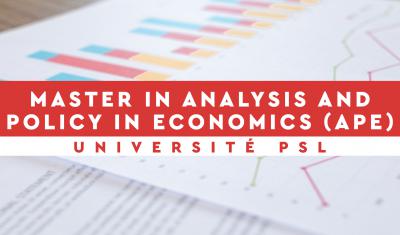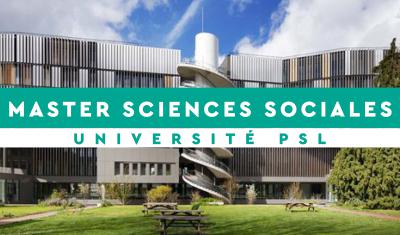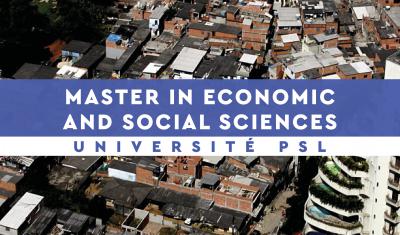"Our actions should enable us to break the vicious circle of poverty"
Mónica is a committed student of the Applied Economics master's degree at the ENS-PSL*.
She shares with us her career path and the subjects that drive her, first of all the fight against social inequalities.

Mónica is a brilliant Mexican student who’s constantly in search of new discoveries. Before enrolling in Université PSL’s Master’s program in Public Policy and Development (applied economics), she had the opportunity to study at several universities.
“First I decided to get a Bachelor’s degree in economics from Dalhousie University in Canada on the recommendation of my brother, who was already a student there. Then, having won a Chevening Scholarship from the British government, I decided on my own to go to University College London for a year-long Master’s program in comparative political economy. I was interested in the program because it gave me a chance to apply certain economic theories, and plus London is an appealing city.”
I realized that we still had a lot to learn about fighting inequality
With her special interest in efforts to combat inequality, she gained some initial career experience at the United Nations Development Programme, where she did work on the Human Development Index, among other projects. Mónica soon realized that what was needed was evidence-based public policy.
“I realized that we still had a lot to learn about fighting inequality and that, first and foremost, we had to acquire more reliable tools and methods for data analysis. The Master’s program in Public Policy and Development attracted my attention right away, because it trains students in developing, analyzing and evaluating public policies for development using modern techniques that will yield more reliable data. By modern techniques, I mean microeconomic analytical tools but also econometrics and quantitative methods in social science.”
Mónica is particularly interested in reducing inequality and poverty and is inspired by the work of Amartya Sen, Martin Ravallion and Esther Duflo. For her thesis topic, she would like to look more closely at gender inequalities and poverty among ethnic minorities in Mexico.
“Ten percent of the Mexican population comes from the indigenous community and 70% of those people live in poverty. I would like to analyze the impact of social policies on Mexico’s population by comparing two groups of people: indigenous and non-indigenous Mexicans.”
She’s particularly drawn to Mexico’s indigenous community because it’s the country’s most underprivileged group.
“When we talk about inequality, we have to look at the people at the bottom of the wealth redistribution system and examine the reasons why they aren’t able to escape the vicious cycle of poverty.”
When you commit yourself to a cause, you can take a step back and become more open to other things
As an activist student, Mónica has also volunteered on numerous projects: she did work for UNICEF at Dalhousie and also at the British Embassy in Mexico as part of its Plant a Tree project. “It’s easy to get caught up in our day-to-day lives. When you commit yourself to a cause, you can take a step back and become more open to other things.”
And when she has some free time, Mónica likes to wander the streets of the City of Light.
“I love getting on a bike or roaming the streets of Paris and even getting totally lost... it’s an opportunity to discover little unexpected details.”
--
* Le Master Politiques Publiques et Développement est co-accrédité par l’ENS-PSL, l’EHESS et l’Ecole des Ponts ParisTech et labellisé par PSE-Ecole d’économie de Paris. Il est également financé par l’IRD et le Cepremap, et bénéficie de l’appui du J-PAL Europe.



